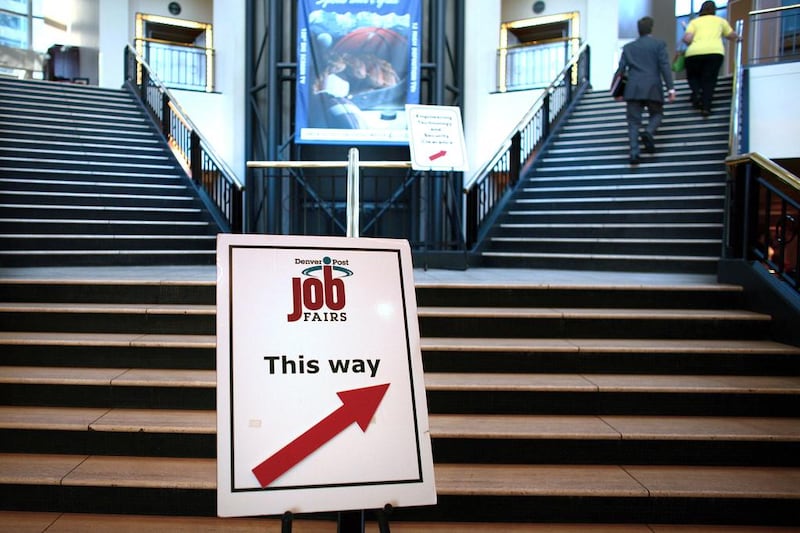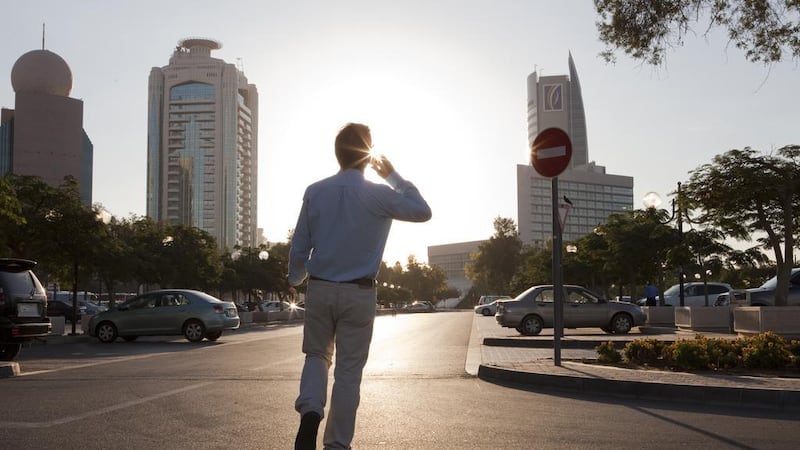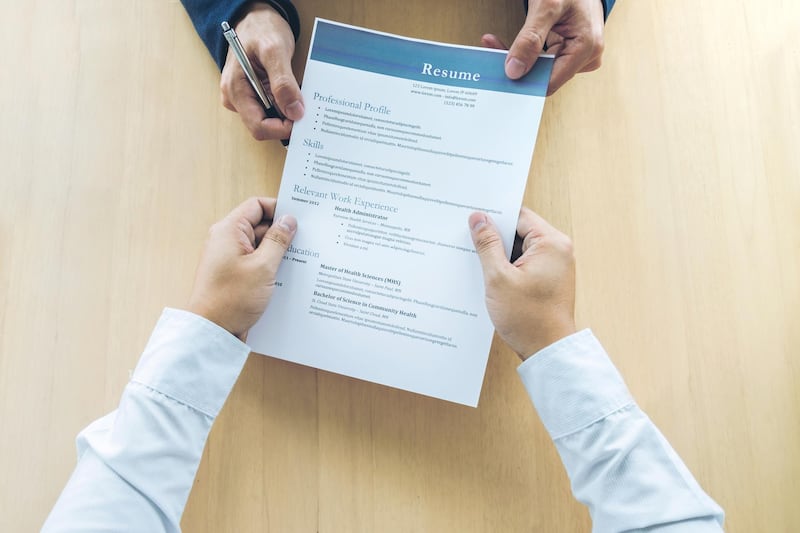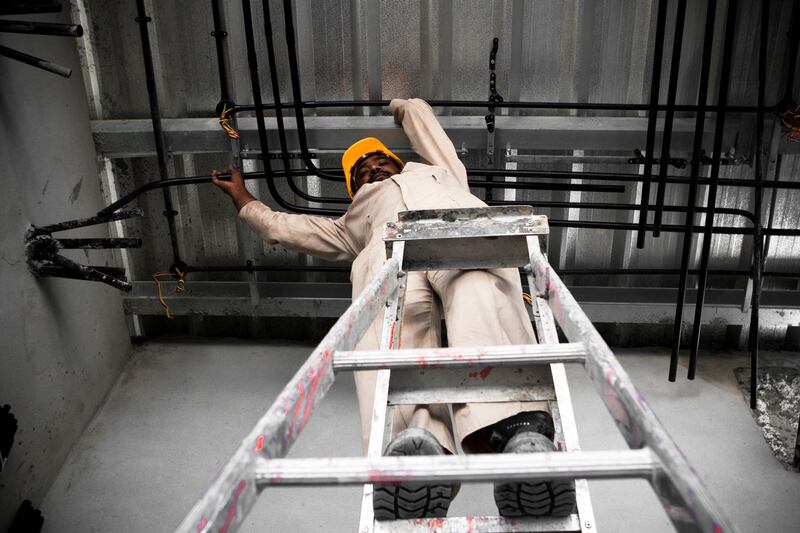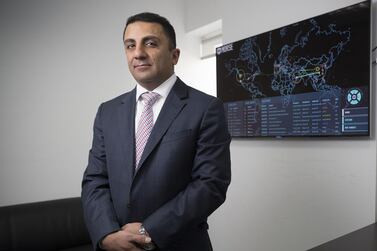Jobseekers should steer clear of recruiters who ask for cash or payment in personal bank accounts, it has been advised.
Consular officials and lawyers urged people to verify companies online before interviews.
They also urged jobseekers to ask questions - and even ask for a company's trade licence.
It follows Dubai Police's arrest of fake recruiters who exploited 150 people.
The men posted fake high-paying jobs on social media and asked candidates to send money to their bank accounts.
Each candidate was asked to pay between Dh1,000 and Dh3,000 to cover employment costs.
The situation has been exacerbated because of the Covid-19 pandemic with many unscrupulous people trying to exploit people in need of a job.
"When somebody offers a disproportionate salary, especially now in times of Covid-19, that should be the first warning sign," said Neeraj Agrawal, an official at the Indian consulate in Dubai.
"A genuine company will never ask you to transfer money to a travel agency or ask you to deposit Dh3,000 ... as an application processing fee," he said.
How can jobseekers avoid getting duped? The National explains:
Never send money to a personal bank account
A genuine recruiter will not ask for money upfront. Be wary if the employment discussion centres around payments instead of your credentials.
There have been cases where job seekers have been asked to pay Dh10,000 or more in installments.
As per UAE law, a licensed labour supplier cannot request or accept money or charge a worker for expenses unless it is approved by the Ministry of Human Resources and Emiratisation.

"We can differentiate a fake website in minutes so when there is a doubt, approach us or file a complaint with the relevant government authorities," said Mr Agrawal.
"People need to be cautious and do their own homework. For the scammers, it works if they trap even one out of 10 people."
Do your own research
Call that firm to double check if hiring is taking place. Find out which companies the recruitment firms have hired for in the past.
Search for clients of the company and call to find out if it has had dealings with the recruitment agency.
Don’t hesitate to ask for a copy of the company’s trade licence and name.
"We would tell people to meet in an office but right now calls are being done by video. You can still research the company," said Barney Almazar, a director at legal practice Gulf Law.
"When being interviewed, don’t be shy to ask for the company’s trade licence. And if you have a high school diploma and the job is for a college graduate, think about whether this is too good to be true."
Fake websites and email addresses
Scammers spend a lot of time creating a genuine look for a website. If a fake website has been created, the emails and telephone numbers will be different from the genuine company, look closely to spot the differences.
A hyphen or a comma could be added to make a fake website or email resemble that of an actual company. If you spot this, double-check with the original company.
The fake firm may alter the logo and company letterhead and provide an alternate phone number.
Cross reference with social media
If the company is not well known, search online for feedback and comments.
Check social media for the recruiter's name, cross-reference the company on sites such as LinkedIn.
Find out if the firm has connections with others in the HR industry.
Regulators such as the Dubai Financial Services Authority, law enforcement agencies such as the Abu Dhabi Police and Dubai Police regularly issue alerts and have published information during the Covid-19 pandemic warning the community about an increase in scams and fraudulent activity.
Ask for help
If you are suspicious about a company that has asked you for funds for employment, raise a complaint with government authorities or the local police station.
Keep a record of the emails and text messages to show as proof. Never divulge sensitive personal information such as pin numbers or passwords. In case a company asks these details, relate this to authorities.
Here are some helpful resources
In case of scams that misuse the identity of the Dubai International Financial Centre (DIFC) or Dubai Financial Services Authority or DFSA, check: https://www.dfsa.ae/Consumer/Complaints
People in India who want to check if a company is genuine can write to: info.dubai@mea.gov.in and to report fraudulent companies in Abu Dhabi email caman@adpolice.gov.ae
